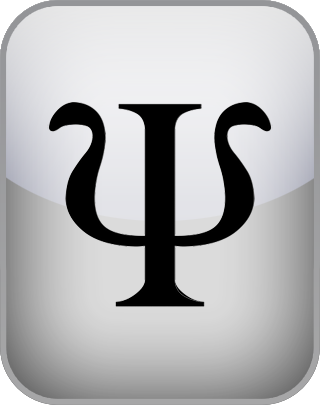Test de Estilo de Personalidad
Este test de estilo de personalidad de 105 preguntas te permitirá obtener tus puntuaciones en los 15 estilos de personalidad. Los estilos de personalidad representan un aspecto dinámico y más fluido de la personalidad que las propiedades más estructurales medidas por la Prueba de tipo Jung o la Prueba de los Cinco Grandes.
Al realizar la prueba es normal que las personas que funcionan bien sientan que varios de los elementos se aplican a ellos. Sin embargo, para obtener resultados óptimos, NO hagas clic en 'Estoy de acuerdo' una pregunta a menos que haya sido un tema constante en tu vida. Si no estás seguro de si una declaración se aplica a ti, selecciona 'No estoy de acuerdo'.
Pregunta 1 de 105
A menudo estoy insatisfecho y gruñón.
CONTINUAR
El "Test de Estilo de Personalidad" es propiedad de IDR Labs International pero rinde homenaje a las obras de Theodore Millon, Seth Grossman, Aaron T. Beck, Arthur Freeman y Nancy McWilliams.
The Personality Style Test, based on the research of Dr. Theodore Millon, is a psychological assessment designed to identify and categorize various personality traits and styles. Millon’s pioneering work in personality theory has provided a comprehensive framework for understanding how individual personalities develop, adapt, and sometimes become maladaptive. His model emphasizes that personality is not static but exists on a continuum, with certain traits manifesting in healthier or more dysfunctional ways depending on life circumstances, coping mechanisms, and other factors.
Dr. Millon’s research is rooted in the idea that personality styles are patterns of thinking, feeling, and behaving that individuals use to interact with the world. Unlike traditional models that focus solely on pathological traits, Millon’s approach recognizes that everyone has a blend of personality characteristics that can be adaptive or problematic depending on context. His work on personality is best known for its application in understanding personality disorders, but the Personality Style Test goes beyond pathology to examine how various personality traits manifest across the population.
Millon identified several distinct personality styles, many of which align with broader categories of personality functioning. These styles are mapped along dimensions of interpersonal relationships, emotional expression, and coping strategies. For example:
Compulsive Personality Style: Characterized by a need for order, control, and perfectionism. Individuals with this style are highly disciplined, but they may also struggle with rigidity and difficulty adapting to change.
Dependent Personality Style: Marked by a deep need for approval and support from others, individuals with this style may have difficulty making decisions or functioning independently, relying heavily on close relationships for guidance.
Histrionic Personality Style: Defined by an intense need for attention and approval, people with this style often exhibit dramatic, emotional behaviors and seek validation through social interactions.
Narcissistic Personality Style: Associated with a strong sense of self-importance, individuals with this style often focus on their own needs and seek admiration, but they may struggle with empathy and close relationships.
Millon’s Personality Style Test also includes other styles, such as avoidant, schizoid, and aggressive styles, each highlighting different ways individuals interact with their environments and relationships. The test reveals which personality traits are dominant in an individual’s psychological makeup, offering insights into how these traits influence behavior, decision-making, and interpersonal relationships.
A key aspect of Millon’s work is the understanding that personality styles exist on a spectrum. While someone may exhibit traits associated with a personality disorder, they can still function adaptively if these traits are balanced and not extreme. Conversely, when these traits become rigid or exaggerated, they can lead to maladaptive behaviors and psychological distress.
In summary, the Personality Style Test based on Millon’s research offers a nuanced view of human personality, recognizing the complex blend of traits that define how individuals interact with the world. It’s an essential tool for clinicians and researchers alike, providing valuable insights into both healthy and problematic personality styles.
Si bien este test puede ayudarte a medir el alcance de tus puntuaciones en las diversas escalas asociadas con los 15 estilos de personalidad, es importante notar que las puntuaciones del test no necesariamente se traducen en evaluaciones del mundo real, realizadas por personal médico certificado con el encuestado físicamente presente y basadas en una revisión exhaustiva de los antecedentes personales y familiares del encuestado, entre otras cosas.
Como tal, ten en cuenta que la información proporcionada por este sitio web proporciona información psicológica solo con fines educativos. La información se proporciona "tal cual" y no debe interpretarse como servicios profesionales o garantías de ningún tipo. El editor no se dedica a la prestación de servicios legales, médicos, financieros o cualquier otro tipo de servicios profesionales. Si se requiere la asistencia de un experto, busca los servicios de un profesional en otro lugar.
El "Test de Estilo de Personalidad"© es propiedad de IDR Labs International. Para más información, por favor, consulta nuestros Términos de Servicio.

 English
English  Español
Español  Português
Português  Deutsch
Deutsch  Français
Français  Italiano
Italiano  Nederlands
Nederlands  Polski
Polski  Українська
Українська  Русский
Русский  Türkçe
Türkçe  العربية
العربية  日本語
日本語  한국어
한국어  ไทย
ไทย  汉语
汉语 